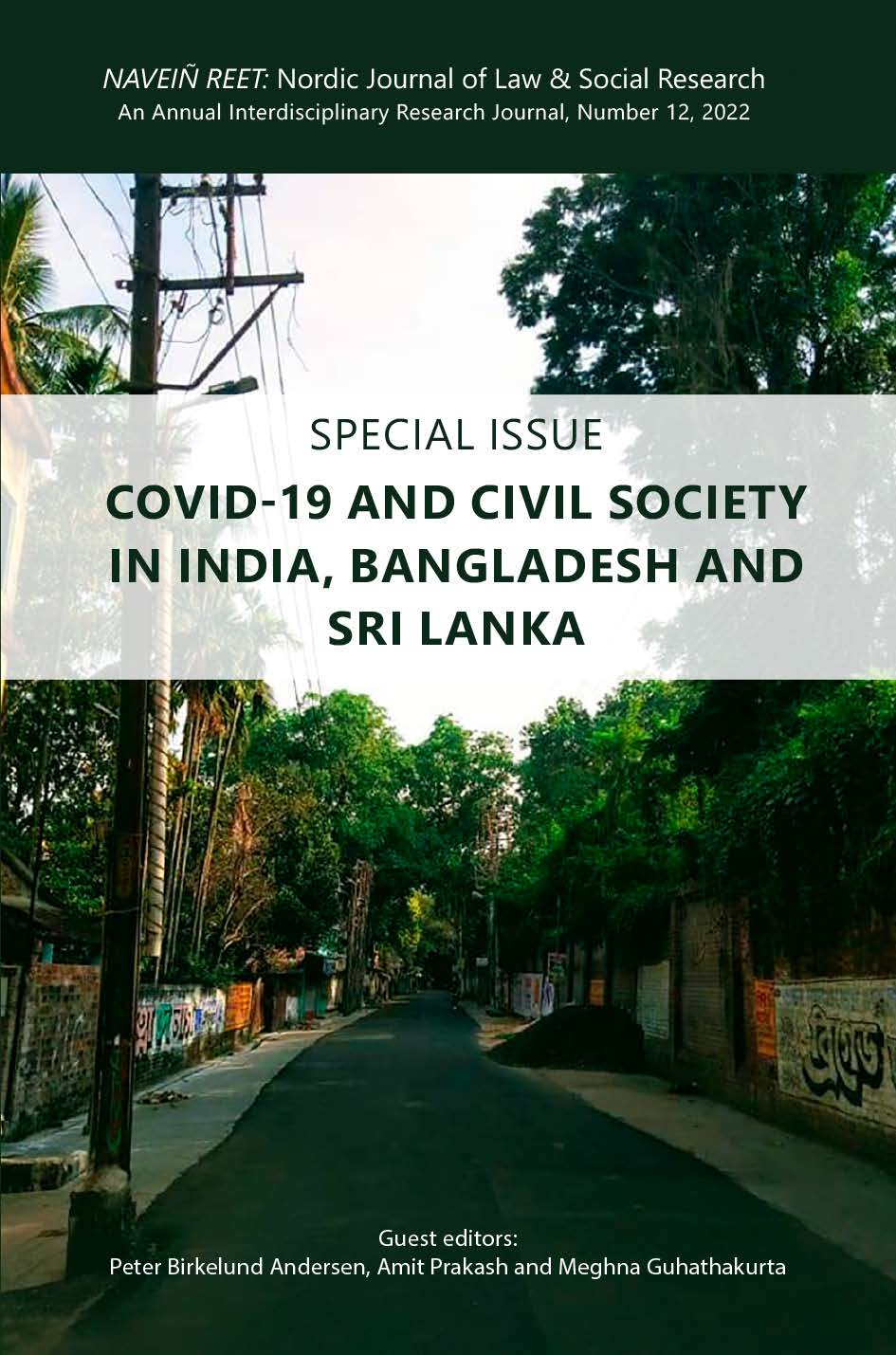Examining the Response of Resident Welfare Associations During the Covid–19 Pandemic and its Ramifications for Urban Governance in India
Abstract
Urban decentralisation in India’s major metropolitan cities has seen a proliferation of Resident Welfare Associations (RWAs), which are representative organisations of and for residents of planned neighbourhoods. Middle-class residents participate in the city’s affairs and their own neighbourhood through this form of organisation. This article attempts to critically examine RWA responses to lockdowns and other measures introduced by central and state governments in India to check the spread of the Covid–19 pandemic.
The article builds upon existing scholarship that is critical of the government’s delegation of city management to entrepreneurial governance in the form of RWAs. RWAs often exhibit exclusionary politics, and the expansion of their roles in the social sphere has serious ramifications for city governance. These ramifications stood severely exposed during the lockdown period. While there were instances of state officials working productively in collaboration with RWA functionaries regarding contact-tracing and dissemination of practical information, there were also reports of discrimination, with the RWAs denying entry to health workers and other service professionals. Existing class and caste biases were also exacerbated by RWA rules that prohibited the entry of domestic workers and self-employed professionals.
While the central, state and city-level officials had their zones of influence, RWAs too emerged as very important actors. Government authorities worked in tandem with the RWAs to enforce and observe pandemic-related restrictions. While this collaboration is useful in extraordinary periods, it compromises the relationship between RWAs and individual citizens as it tilts the long-run balance of power in favour of RWAs. The article attempts to put this behaviour in perspective by contextualising it with literature on RWAs, arguing that the state co-opts RWAs for administrative and political ends and, as a consequence, RWAs emerge more powerful and with expanded scopes of influence. Developments that lead to the amplification of RWA power need to be critically examined, for they reveal the paradoxes inherent in the idea of civil society.
Downloads
Published
How to Cite
Issue
Section
License
Counting from number 12 (2022), articles published in NNJLSR are licensed under Attribution 4.0 International (CC BY 4.0). Readers are allowed to copy and redistribute the articles in any medium or format, to adapt and revise the articles, and use the articles for commercial purposes, provided that the readers give appropriate credits.
No Creative Commons licenses are applied on articles in number 1 (2009)-11 (2021). All rights reserved by the authors. Readers are allowed to download, read, and link to the articles published in volume 1 (2009)-11 (2021), but they may not republish or redistribute these articles without permission of the authors.

